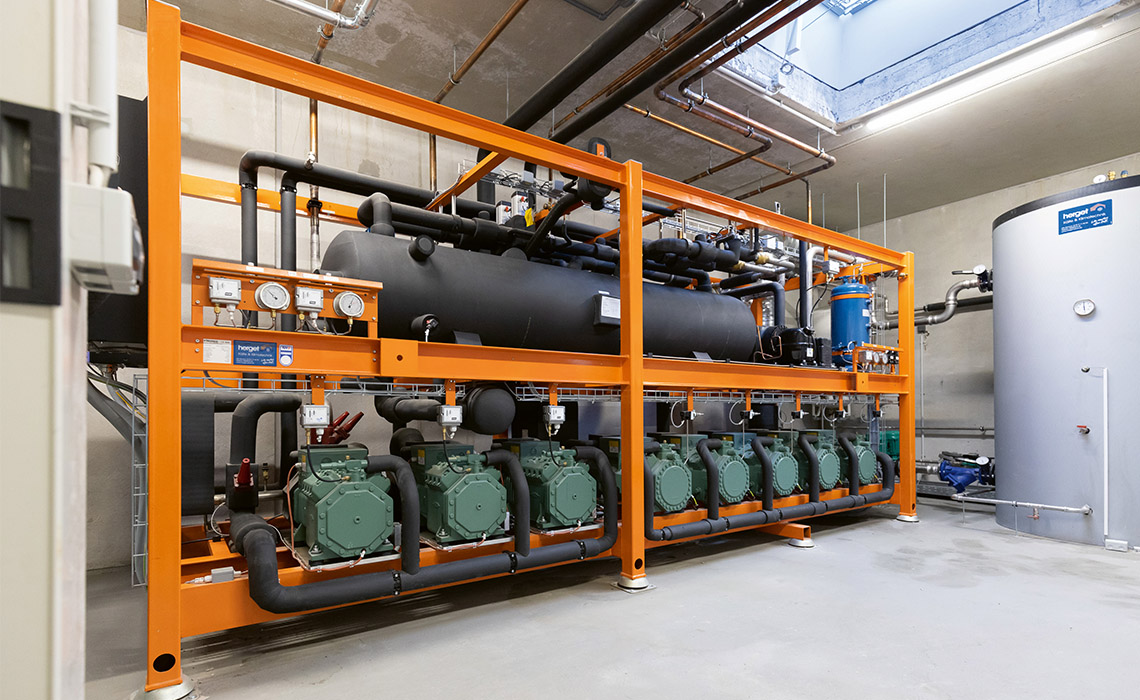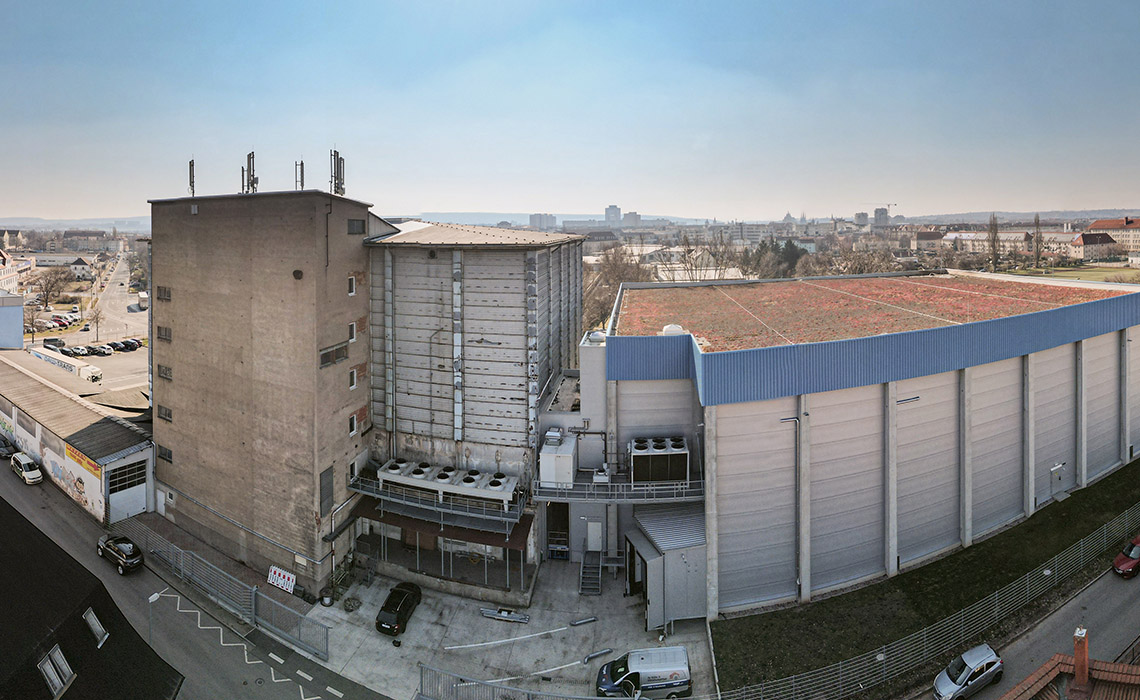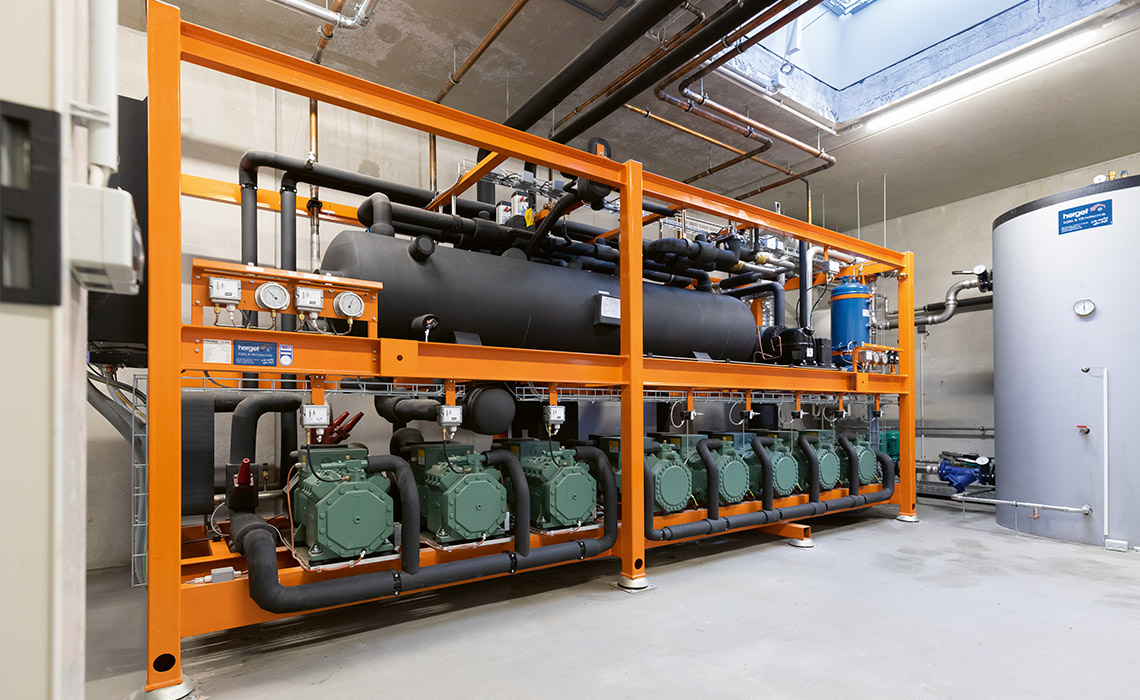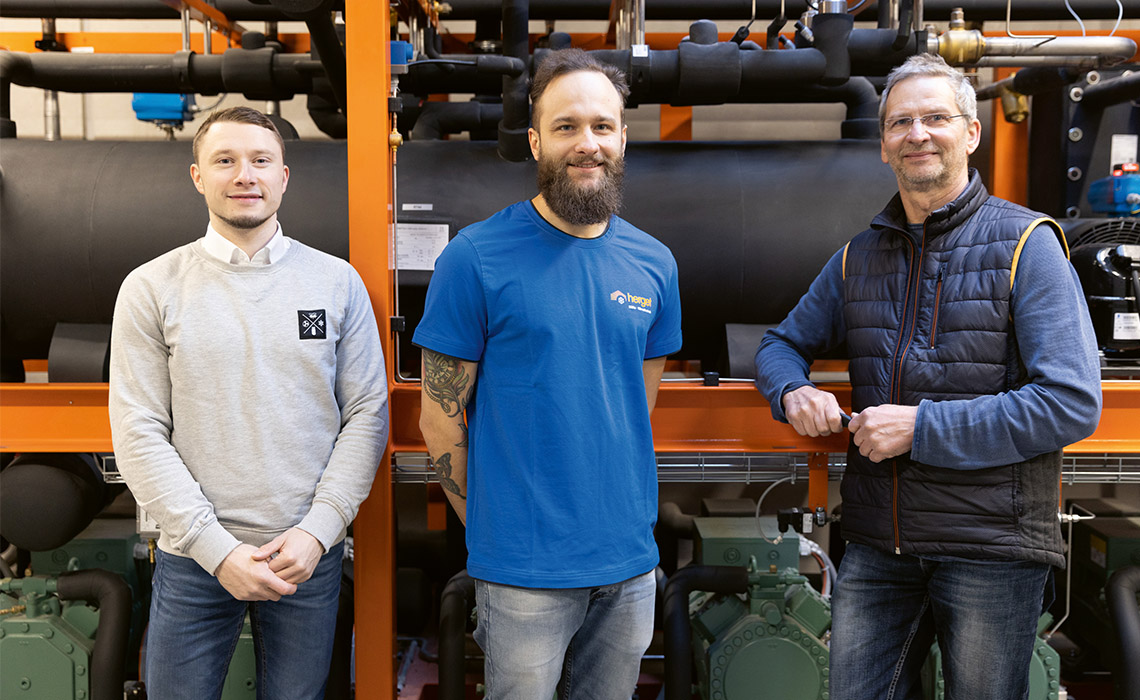New trends are not only changing the face of food logistics over the long term, but also frequently pose new challenges. Like data tracking and home delivery solutions for refrigerated transport, sustainable and efficient refrigeration systems are also a key component of the food logistics sector. After all, Germany consumes 3.5 million tonnes of food annually that has to be kept fresh with modern refrigeration technology.
Temperature-controlled food logistics needs to be able to ensure a wide range, from an arctic -18 °C to more pleasant temperatures above zero. For example, fish requires a transport temperature of -18 °C, whilst butter maintains its freshness at +10 °C. Cold stores not only temporarily store goods in transit from the producer to the consumer, but also enable a sustainable, regional supply for consumers, which is why they’re a key aspect of the active cold chain. Located in the heart of Germany, Thüringer Kühlhäuser GmbH has been operating successfully in this segment in Erfurt and at three additional locations since 1990.
When it came to renovating the existing refrigeration system at the Erfurt location in 2021, Thüringer Kühlhäuser GmbH selected Flebbe GmbH to be its general contractor and commissioned Herget GmbH & Co. KG with the development and installation of a sustainable solution for its low temperature storage. The operators of the cold store, which has been operating since 1939, opted for the refrigerant CO2, as its GWP of 1 and high efficiency in low temperature applications made it the most sustainable and efficient solution for the new refrigeration system.
Working with the experts of Fischer Kälte-Klima, the Herget GmbH & Co. KG team developed a state-of-the-art solution which more than fulfils current efficiency and sustainability standards. Designed exclusively for low temperatures, the system supplies a cooling capacity of 295 kW with an ambient temperature of +35 °C when t0 = -32 °C and tc = -5 °C. The booster system is based on five semi-hermetic BITZER reciprocating compressors in the high pressure stage and three low temperature compressors. A frequency inverter controls the first compressor for each pressure stage.
When it came to choosing the compressors, the experts of Herget GmbH & Co. KG opted for the efficient BITZER ECOLINE models. The 4CTEU-30LK (FI-controlled) and four 4CTE-30K models for transcritical CO2 applications are used for the high pressure stage. A 4PSL-25K reciprocating compressor with frequency inverter and two 4NSL-30K (uncontrolled) reciprocating compressors for subcritical CO2 applications ensure sufficient capacity in the low pressure stage.
In addition to a wide range of application limits, all BITZER compressors also offer maximum operating reliability. Thanks to the flow-optimised pressure and suction gas duct in the ECOLINE housing, they deliver optimal efficiency. Most noteworthy is the innovative permanent magnet motor technology of the 4CTEU-30LK reciprocating compressor in the ECOLINE+ series, which can fully exploit its efficiency particularly when the motor load is weaker over the course of a year. It’s the perfect basis for industrial CO2 applications.
Despite all the difficulties of the coronavirus pandemic, the refrigeration and air conditioning specialists were able to complete the project on time. But the operators are not only proud of that. The sustainable, future-proof solution ensures much lower energy consumption – and thus significant savings when it comes to operating the new cold store.





